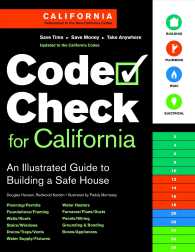Description
The Routledge Handbook of Political Parties provides a systematic and comprehensive overview of the study of political parties provided by leading experts in the field.
In an era of widespread political disillusionment, political parties are often the main targets of citizen dissatisfaction, yet they are the key institutions that make democracy work. Analysing political parties in unrivalled depth and breath, with comparative thematic chapters throughout, as well as a dedicated section on political parties and party politics in specific country and regional settings, this handbook examines and illuminates the key questions around: how parties organise; how their ideologies have evolved over time; their relationship with society; how they differentiate themselves and how they respond to new social, economic, and political developments.
The Routledge Handbook of Political Parties is essential reading and an authoritative reference for scholars, students, researchers and practitioners involved in and actively concerned about research in the study of political parties, party systems, and party politics.
Table of Contents
Introduction
Neil Carter, Daniel Keith, Gyda M. Sindre and Sofia Vasilopoulou
PART 1 Definitions and party evolution
1 Party change beyond the ‘classical models?’ The role of agency, context, and democracy
Oscar Mazzoleni and Reinhard Heinisch
2 Parties and partisanship in political theory
Alfred Moore
3 Party systems and party system change
Zsolt Enyedi and Fernando Casal Bértoa
PART 2 Party as an organization
4 Party organization
Anika Gauja
5 Party membership
Susan E. Scarrow and Paul D. Webb
6 Party finance
Daniela R. Piccio
7 Party institutionalisation
Nicole Bolleyer
8 Political parties and social movements
Myrto Tsakatika
9 Political parties and gender
Tània Verge
PART 3 Party ideology and party families
10 Cleavage politics in the twenty-first century
James Dennison and Sophia Hunger
11 The far right
Daphne Halikiopoulou
12 The centre-right: Christian Democrats, Conservatives and Liberals
Marija Taflaga
13 Liberal parties
Caroline Close and Thomas Legein
14 Social democracy
Björn Bremer
15 Radical left parties
Daniel Keith and Luke March
16 Green parties
Neil Carter
PART 4 Party competition and representation
17 Party strategies: valence versus position
Agnes Magyar, Sarah Wagner and Roi Zur
18 Issue competition and agenda setting
Christoffer Green-Pedersen
19 Niche parties and party competition
Markus Wagner
20 Parties in government and in coalitions
Zachary Greene and Despina Alexiadou
21 Parties and representation
Jae-Jae Spoon
22 Personalisation and political parties
Helene Helboe Pedersen
PART 5 Contemporary issues and challenges
23 Populism and parties
Stijn van Kessel
24 Parties and climate change
Conor Little
25 Parties and immigration
Pontus Odmalm
26 Parties and European integration
Sofia Vasilopoulou
27 Parties, issues and gender
Hilde Coffé, Miki Caul Kittilson, Bonnie M. Meguid and Ana Catalano Weeks
28 Post-conflict political parties
Carrie Manning and Gyda M. Sindre
29 Clientelism and political parties
Sergiu Gherghina and Clara Volintiru
PART 6: Regional comparisons
30 Political parties in Russia and post-Soviet states
Neil Robinson
31 Political parties in East Asia
Ko Maeda
32 Political parties in Southeast Asia
Andreas Ufen
33 Political parties in Latin America
Saskia P. Ruth-Lovell
34 Political parties in Sub-Saharan Africa
Matthijs Bogaards
35 Political parties in North Africa
Lise Storm
36 Political parties in the Arab Middle East
Hendrik Jan Kraetzschmar and Valeria Resta
37 Political parties in India
Indrajit Roy and Maya Tudor
PART 7 Methods for estimating party preferences
38 Text analysis of party manifestos
Daniela Braun
39 Voting advice applications
Frederico Ferreira da Silva and Diego Garzia
40 Expert surveys in party research
Maurits J. Meijers and Nina Wiesehomeier








